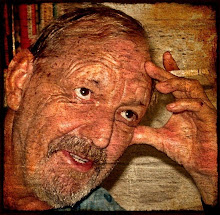
I've been too depressed by the whole situation between Israel and the Palestinians to wite anything at all recently.
Incompetent US Presidents, Secretaries of State, ex British Prime Ministers, etc, flock to Israel to kowtow and pay obeisance to, and fulfil every wish of an incompetent Israeli Prime Minister (just about to be sacked, finally, for his incompetence) and a so-called Palestinian President who has no control over a large section of his subjugated population.
Meanwhile, the 1.5 million inhabitans of Gaza were being put under total siege, while the rest of the world ignored them.
Now, thank God, they've taken matters into their own hands:
Tens of thousands of Palestinians have surged into Egypt from the Gaza Strip after masked militants destroyed parts of the border wall. Gazans rushed to buy food, fuel and other supplies that have become scarce because of an Israeli blockade - aimed at stopping rocket attacks from Gaza.
Egyptian police took no action to stop people crossing.
Egypt's President Hosni Mubarak says he allowed Gazans in to buy food, but Israel urged Egypt to restore security.
Hamas leader Ismail Haniya called for urgent talks with Egypt and his Palestinian rival, President Mahmoud Abbas, on border crossings.
"We do not want to control everything, we are part of the Palestinian people," Mr Haniya said, apparently in response to an offer from Palestinian Authority Prime Minister Salam Fayad to control Gaza's borders - so far rejected by Israel.
Hamas has controlled Gaza since last June.
A total of 350,000 Gazans crossed the Egyptian border, Israel's Haaretz newspaper reported.
Hamas has not taken responsibility for breaching the border but quickly moved in to police it, the paper said, confiscating seven pistols from a man returning to Gaza.
We want to buy rice and sugar, milk and wheat and some cheese
Haaretz quoted one Gazan, Mohammed Abu Ghazel, as saying he had crossed the border three times with cigarettes which he had sold for five times the price he bought them.
"This can feed my family for a month," he said.
Correspondents say the breaching of the border is a security concern for Israel, as Egypt is a main source of weapons for the militant groups in Gaza.
But the BBC's Tim Franks in Rafah on the Gaza-Egypt border says it will be difficult for the Egyptians to reseal the border on their own, and Hamas has very little incentive to co-operate.
EGYPT-GAZA BORDER 12km (7.4 miles) long. Egyptian side patrolled by 750 soldiers under 2005 agreement with Israel. Border crossing terminal south of town of Rafah. PA control of terminal under EU supervision collapsed after Hamas takeover of Gaza in June 2007 Border closed almost continuously since
Palestinians have broken through the border before, in 2005, and it was quickly resealed with barbed wire, but reports say that on this occasion two-thirds of the border wall was destroyed.
Overnight, gunmen set off a number of explosions along the wall near the Rafah crossing.
People then packed into cars and donkey carts, or crossed the border on foot, to buy essential goods.
Among them was Ibrahim Abu Taha, a father of seven, who told the Associated Press news agency: "We want to buy rice and sugar, milk and wheat and some cheese."
One Gaza woman told the BBC as she crossed the border: "We're going over there to our family. They're all there. I haven't seen [them] for 10 years."
President Mubarak said he had allowed the Palestinians to come in.
He said he had told Egyptian troops to "let them come to eat and buy food and go back, as long as they are not carrying weapons".
Israeli foreign ministry spokesman Arye Mekel said his government was concerned about the chaos.
But in a BBC interview, he added: "It's the responsibility of Egypt to ensure that the border operates properly according to the signed agreements."
US State Department spokesman Tom Casey said Washington was concerned about the situation, as was Egypt.
In recent months the border has been mostly sealed, in an understanding between Israel and Egypt.
The territory has been short of fuel and other essential goods since last week, when Israel imposed the blockade.
It was eased slightly on Tuesday to allow some fuel and medicines through.
 Greg Laden's Blog has a fascinating film about the truly amazing speed that these 'shrimps' move, which is quite unbelievable - they would have put Mohammed Ali in the shade.
Greg Laden's Blog has a fascinating film about the truly amazing speed that these 'shrimps' move, which is quite unbelievable - they would have put Mohammed Ali in the shade.









